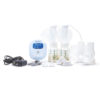MTHFR Gene and Pregnancy: Why L-Methylfolate Matters More Than Folic Acid

MTHFR Gene and Pregnancy:
Why L-Methylfolate Matters More Than Folic Acid
The Hidden Gene That Affects 40% of Pregnant Women
If you’re pregnant or planning to conceive, you’ve likely heard about the importance of folic acid for preventing neural tube defects. But what if your body can’t properly process folic acid? For up to 40% of the population with MTHFR gene variations, synthetic folic acid in standard prenatal vitamins may not provide optimal protection.
This guide explains everything you need to know about MTHFR, pregnancy, and why L-methylfolate might be the better choice for your prenatal vitamin.
What is the MTHFR Gene?
The MTHFR gene provides instructions for making an enzyme called methylenetetrahydrofolate reductase, which plays a crucial role in processing folate (vitamin B9) in your body. This enzyme is responsible for converting folic acid into L-methylfolate, the active form that your body can actually use for essential processes like DNA synthesis and repair, neural tube development, red blood cell formation, and neurotransmitter production.
When the MTHFR gene functions normally, this conversion process works efficiently, and your body can utilize folate from food sources and supplements effectively. However, when genetic variations affect this gene, the enzyme doesn’t work as well, creating a bottleneck in folate metabolism that can have health implications, particularly during pregnancy.
MTHFR role
- DNA synthesis and repair
- Neural tube development
- Red blood cell formation
- Neurotransmitter production
MTHFR Gene Variations: More Common Than You Think
The most common MTHFR gene variations occur at two specific locations, each affecting enzyme function differently. The C677T variation, found in 30-40% of the population, can reduce enzyme activity by anywhere from 30-70% depending on whether you inherited one or two copies of the variant. This variation is more common in certain ethnic groups, particularly those of Mediterranean, Hispanic, and some Asian ancestries.
The A1298C variation affects 20-25% of the population and typically reduces enzyme activity by 10-20%. While this may seem less significant, it can still impact folate metabolism, especially when combined with other factors like poor diet or increased nutritional demands during pregnancy.
Some individuals carry both variations, known as compound heterozygotes, which can result in significantly reduced enzyme function. These individuals may require higher doses of active folate and more careful monitoring of their folate status, particularly during pregnancy when demands are highest.
Types of MTHFR Variations:
C677T Variation:
- Found in 30-40% of the population
- Reduces enzyme activity by 30-70%
- More common in certain ethnic groups
A1298C Variation:
- Found in 20-25% of the population
- Reduces enzyme activity by 10-20%
- Can occur alongside C677T variation
Compound Variations:
- Some people have both variations
- Results in significantly reduced enzyme function
- May require higher doses of active folate
Why Standard Folic Acid May Not Be Enough
When you take a standard prenatal vitamin containing folic acid, your body must go through a complex conversion process to transform it into L-methylfolate, the form your cells can actually use. This process begins when synthetic folic acid enters your system, where it must be converted by the MTHFR enzyme into the active form. However, when gene variations reduce the efficiency of this conversion, several problems can arise.
The first issue is that insufficient active folate becomes available for the critical processes needed during pregnancy, including DNA synthesis for rapidly dividing cells and neural tube development. When the conversion process is impaired, unmetabolized folic acid may begin to accumulate in your bloodstream, potentially interfering with folate metabolism and masking vitamin B12 deficiencies.
L-Methylfolate: The Active Form Your Body Needs
L-methylfolate represents a revolutionary approach to folate supplementation because it provides the active form of folate that your body needs without requiring any conversion. This means that regardless of your MTHFR genetic status, L-methylfolate can be immediately absorbed and utilized by your cells for essential pregnancy processes.
The benefits of choosing a prenatal vitamin with L-methylfolate are significant. Direct absorption means no conversion is required, making it immediately available for cellular processes and completely bypassing any limitations imposed by MTHFR enzyme variations. This enhanced effectiveness typically results in better blood folate levels, reduced neural tube defect risk, and improved overall pregnancy outcomes.
L-methylfolate also offers a safer profile compared to synthetic folic acid. There’s no risk of unmetabolized folic acid accumulation, it’s better tolerated by individuals with sensitivities, and it reduces the risk of masking vitamin B12 deficiencies that can occur with high-dose folic acid supplementation.
Benefits of L-Methylfolate in Prenatal Vitamins:
Direct Absorption:
- No conversion required
- Immediately available for cellular processes
- Bypasses MTHFR enzyme limitations
Enhanced Effectiveness:
- Better blood folate levels
- Reduced neural tube defect risk
- Improved pregnancy outcomes
Safer Profile:
- No unmetabolized folic acid accumulation
- Better tolerated by sensitive individuals
- Reduced risk of masking B12 deficiency

Choosing the Right Prenatal Vitamin with MTHFR
When selecting a prenatal vitamin with MTHFR considerations in mind, the most important feature to look for is L-methylfolate instead of folic acid. This active form requires no conversion and is typically provided in doses of 400-800 mcg per serving. Look for labels that specifically mention “methylfolate” or “5-MTHF” rather than just “folate” or “folic acid.”
Supporting nutrients are also crucial for optimal methylation function. Vitamin B12 should be present in the supplement as methylcobalamin, the active form that works synergistically with L-methylfolate. Vitamin B6 as P5P (pyridoxal-5-phosphate) supports the methylation pathway, while choline provides methylation support and betaine helps with homocysteine metabolism.
Quality considerations become even more important when dealing with MTHFR variations. Look for prenatal vitamins that are third-party tested for purity, use stable and bioavailable forms of nutrients, and avoid synthetic additives or fillers that might interfere with absorption or metabolism.
Look for These Features:
L-Methylfolate Instead of Folic Acid:
- Active form requires no conversion
- Typically 400-800 mcg per serving
- Often labeled as “methylfolate” or “5-MTHF”
Supporting Nutrients:
- Vitamin B12 (as methylcobalamin)
- Vitamin B6 (as P5P)
- Choline for methylation support
- Betaine for homocysteine metabolism
Quality Considerations:
- Third-party tested for purity
- Stable, bioavailable forms
- No synthetic additives or fillers
Other Nutrients Important for MTHFR Variations
Beyond L-methylfolate, several other nutrients play crucial roles in supporting healthy methylation and folate metabolism. Vitamin B12 is particularly important and should be present as methylcobalamin rather than the cheaper cyanocobalamin form. Methylcobalamin supports the methylation pathway directly and helps prevent the vitamin B12 deficiency that can be masked by high-dose folic acid supplementation.
Vitamin B6 in the form of P5P (pyridoxal-5-phosphate) is essential for homocysteine metabolism and neurotransmitter production. This active form bypasses the need for conversion and is immediately available for the biochemical processes that support healthy pregnancy.
Choline deserves special attention for women with MTHFR variations because it provides an alternative methylation pathway when folate metabolism is impaired. Choline also supports fetal brain development and is often inadequate in standard diets, making supplementation particularly important during pregnancy.
Vitamin B12:
- Choose methylcobalamin form
- Supports methylation pathway
- Prevents B12 deficiency masking
Vitamin B6:
- Use P5P (pyridoxal-5-phosphate) form
- Supports homocysteine metabolism
- Essential for neurotransmitter production
Choline:
- Alternative methylation pathway
- Supports fetal brain development
- Often inadequate in standard diets
Lifestyle Factors That Support Methylation
While choosing the right prenatal vitamin is crucial, lifestyle factors also play a significant role in supporting healthy methylation. Dietary choices can either support or hinder folate metabolism. Focus on incorporating leafy green vegetables, legumes and lentils, and eggs into your diet while avoiding processed foods that may contain synthetic folic acid and limiting alcohol consumption, which can interfere with folate metabolism.
Your supplementation strategy should begin before conception when possible, starting prenatal vitamins at least three months before trying to conceive. Consider additional B-complex support if recommended by your healthcare provider, monitor homocysteine levels to assess methylation efficiency, and work closely with healthcare providers who understand MTHFR and its implications for pregnancy.
Dietary Choices:
- Eggs and organ meats
- Leafy green vegetables
- Legumes and lentils
- Avoid processed foods
- Limit alcohol consumption
Supplementation Strategy:
- Start prenatal vitamins before conception
- Consider additional B-complex support
- Monitor homocysteine levels
- Work with healthcare providers
The Prenatal Ease Difference: MTHFR-Friendly Formulation
Our Prenatal Ease collection has been specifically formulated with MTHFR variations in mind, recognizing that a significant portion of women may not effectively utilize synthetic folic acid. Every formulation in our line uses L-methylfolate as the standard, not as an upgrade or special version. This ensures optimal folate status regardless of genetic variations, using stable, bioavailable forms that maintain potency throughout the product’s shelf life.
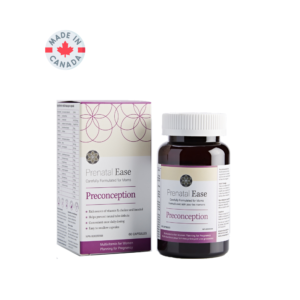
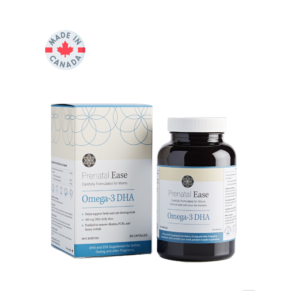
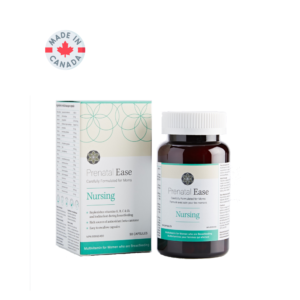
The comprehensive support provided by Prenatal Ease extends beyond just folate. We include methylcobalamin B12 and P5P vitamin B6 to support the entire methylation pathway, along with adequate choline levels that are often missing from other prenatal vitamins. Our clean, gentle formulation avoids synthetic additives that might interfere with nutrient absorption or metabolism.
What sets Prenatal Ease apart is our stage-specific approach that considers how MTHFR variations might affect needs throughout the motherhood journey. Our preconception formula provides focused support for egg quality and fertility, our pregnancy formulations adapt to changing methylation demands throughout different trimesters, and our postpartum formula supports recovery and breastfeeding with continued methylation support.
L-Methylfolate Standard:
- All formulations use L-methylfolate, not folic acid
- Optimal dosing for pregnancy needs
- Stable, bioavailable form
Comprehensive Support:
- Methylcobalamin B12
- P5P vitamin B6
- Adequate choline levels
- Clean, gentle formulation
- Preconception support
Stage-Specific Needs:
- Trimester-appropriate dosing
- Postpartum recovery focus

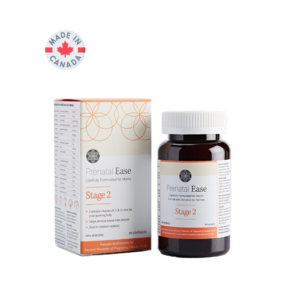
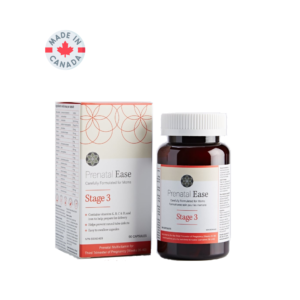
Working with Your Healthcare Provider
Managing MTHFR variations during pregnancy requires collaboration with knowledgeable healthcare providers who understand the implications of these genetic variations. Important discussions should include reviewing your family history and personal risk factors, discussing whether MTHFR testing would be beneficial, and establishing a plan for monitoring homocysteine levels throughout pregnancy.
Your healthcare provider can help adjust supplementation as needed based on your test results and individual response, coordinate with fertility treatments if applicable, and monitor for any pregnancy complications that might be related to folate metabolism issues.
Key questions to ask your provider include whether you should be tested for MTHFR variations, what your optimal folate levels should be during pregnancy, whether you need additional methylation support beyond standard prenatal vitamins, and how long you should continue taking L-methylfolate supplementation.
Important Discussions:
- Review family history and risk factors
- Discuss MTHFR testing options
- Monitor homocysteine levels
- Adjust supplementation as needed
- Coordinate with fertility treatments
Questions to Ask:
- Should I be tested for MTHFR variations?
- What are my optimal folate levels?
- Do I need additional methylation support?
- How long should I take L-methylfolate?
Personalized Nutrition for Better Outcomes
Understanding MTHFR and its impact on pregnancy nutrition represents a shift toward personalized prenatal care. While not every woman needs to worry about MTHFR variations, choosing a prenatal vitamin with L-methylfolate ensures optimal folate status regardless of genetic variations.
Don’t leave your pregnancy nutrition to chance. Choose a prenatal vitamin that works with your body’s unique needs, not against them.
Discover our MTHFR-friendly Prenatal Ease collection, formulated with L-methylfolate and supporting nutrients for optimal pregnancy outcomes







